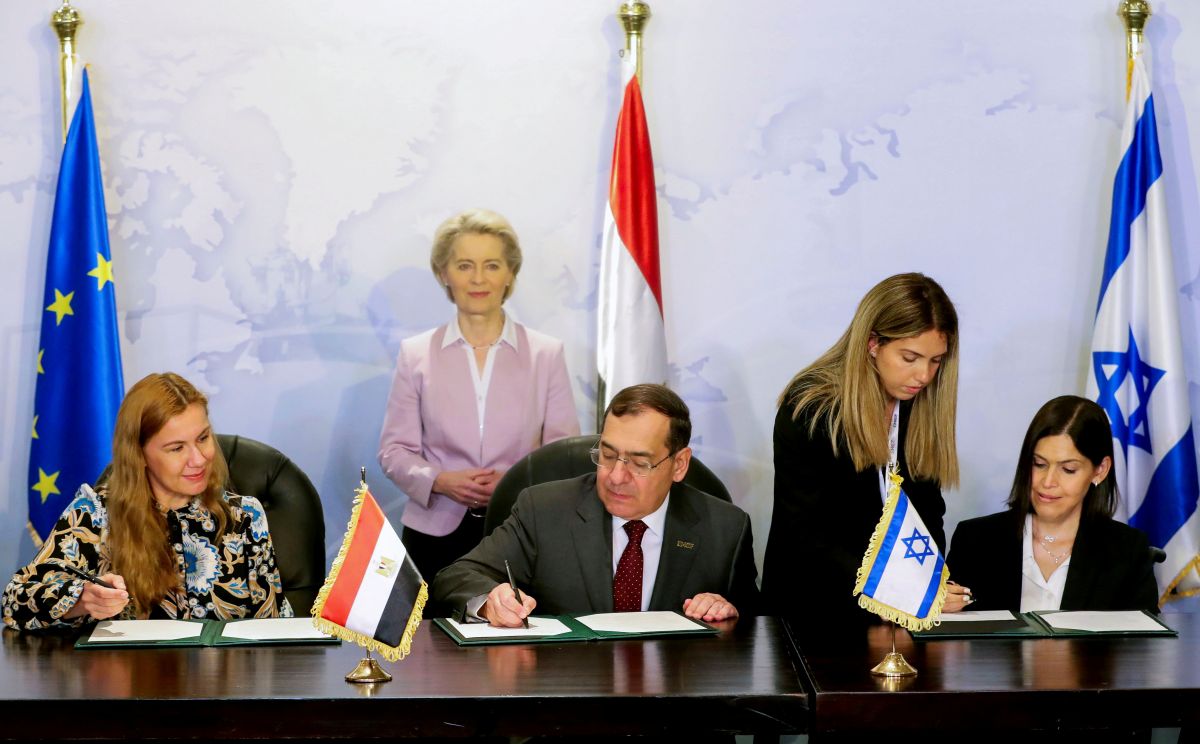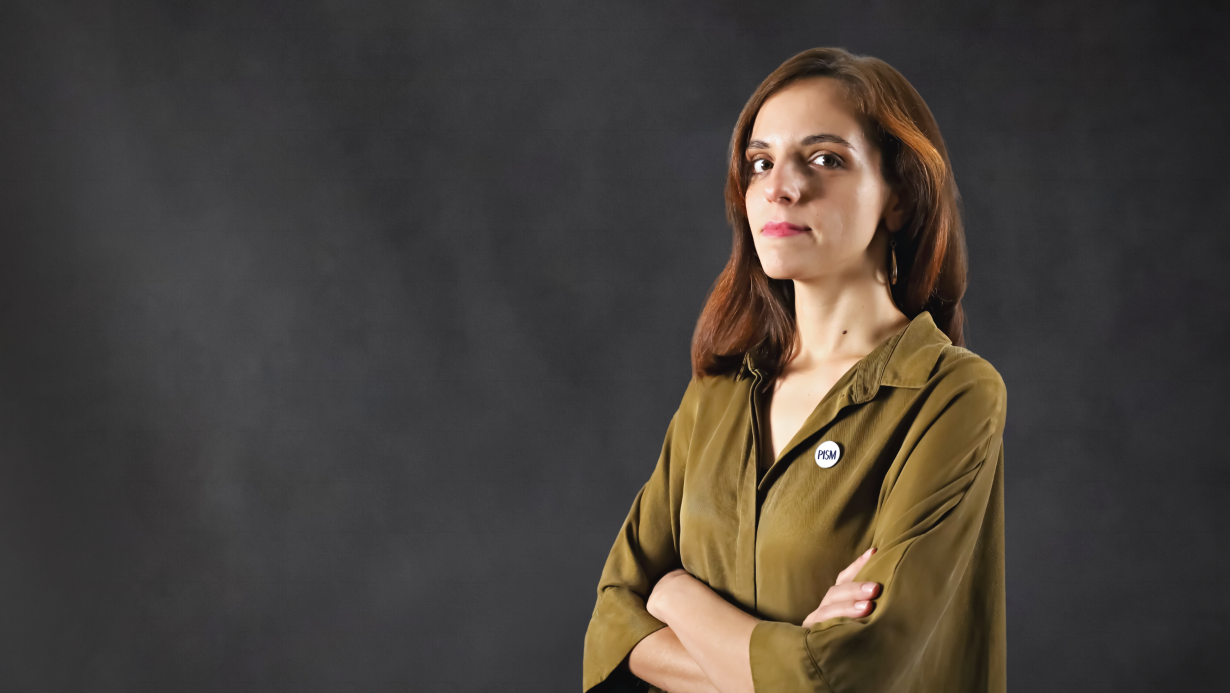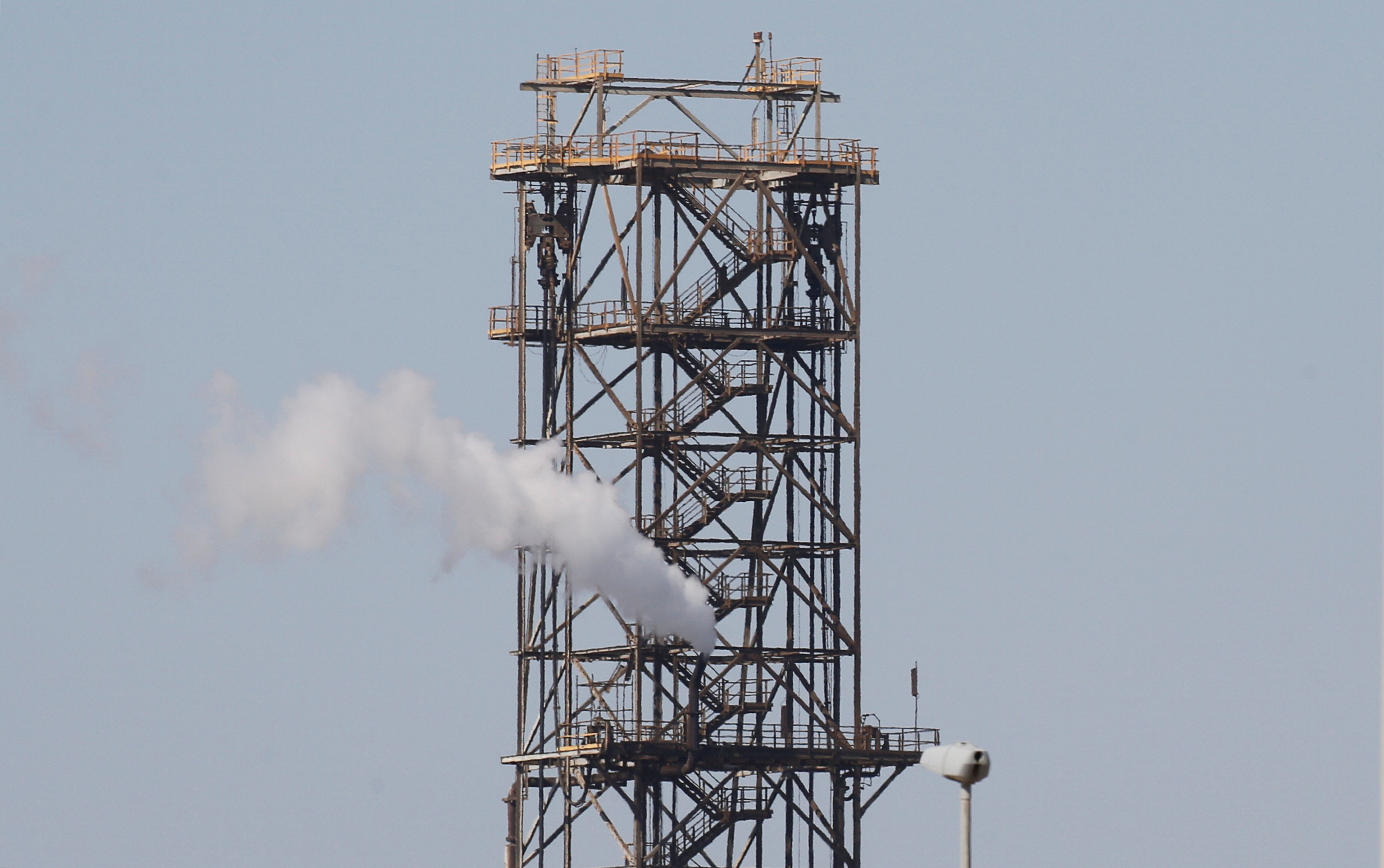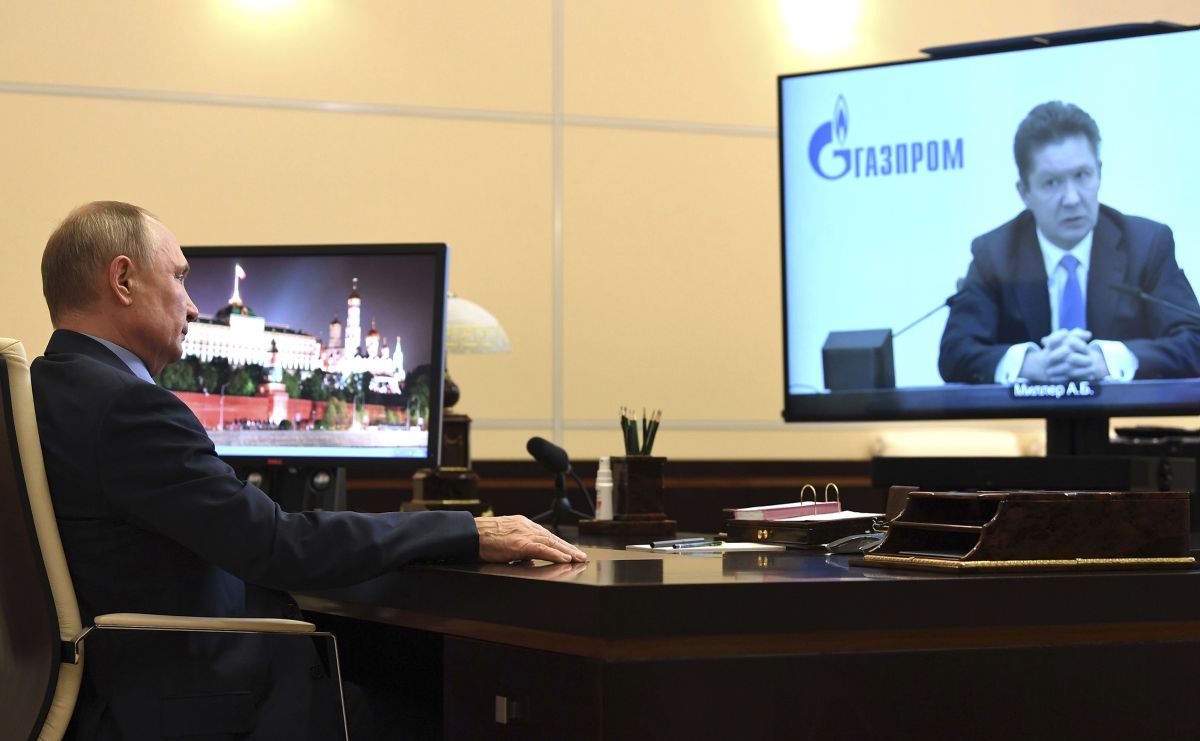The EU's Difficulties with Increasing Gas Imports from Arab States
In mid-June, the EU signed an agreement with Egypt and Israel as part of an effort to increase gas imports from the Middle East and North Africa. However, among the obstacles to replacing Russian supplies with gas from this region are the limited infrastructure and the high demands of exporting countries. To increase the chances of success in this area, the EU may propose to combine gas purchase contracts with investments in the development of local renewable energy sources and new technologies.
 SHOKRY HUSSIEN/ Reuters/ FORUM
SHOKRY HUSSIEN/ Reuters/ FORUM
Since the beginning of the Russian invasion of Ukraine in February, the EU and its Member States have been striving to increase gas supplies from the countries of the Middle East and North Africa. In March, the German authorities signed an energy partnership agreement with Qatar. In April, the Italian energy company Eni and the Algerian Sonatrach signed an agreement to increase gas production and develop green hydrogen production in Algeria. Between February and June this year, Qatar was visited by representatives of Austria and Czechia to discuss the intensification of energy cooperation. In turn, the European Commission (EC) in June signed an agreement with the authorities of Egypt and Israel to increase gas exports from these countries using Egyptian liquefaction infrastructure. The increasing importance of gas in these relations was indicated in July when the EU listed this raw material as a sustainable energy source (although only in strictly defined cases) and in works towards reaching an agreement on joint gas purchases.
Exorbitant Demands
A significant difficulty in replacing Russian gas with supplies from Arab states are the demands made by these exporters. From the beginning of the talks on energy cooperation, Qatar has set three conditions before it will increase its gas exports to the EU (in the short term, in any case it will not be able to replace supplies from Russia). The first was that Qatar demanded long-term contracts with the Union, similar to the agreements Qatar has with Asian countries (and also with Poland), where about 80% of Qatar’s liquefied natural gas (LNG) is shipped. From Qatar’s perspective, redirecting those supplies to European markets, which strive to shift away from high-carbon energy sources, is too risky without securing long-term commitments. Qatar also wants the Member States to commit to not redirecting imported LNG to other EU countries and the EU to ban the resale of Qatari LNG outside Europe to limit potential competition. So far, the EU authorities have agreed to only one of Qatar’s demands—ending the investigation into restrictions on the free flow of gas sold by Qatar in Europe, which has been ongoing since 2018. The remaining demands, which the Member States and the EU do not want to agree to, are hampering negotiations on a contract between Germany and Qatar.
Middle East countries are also trying to use gas for political purposes. For example, in April, Algeria threatened to interrupt gas supplies to Spain (Algerian gas accounts for 40% of Spanish imports) if it did not stop re-exporting it to Morocco. Morocco and Algeria have been arguing for years over the sovereignty of Western Sahara, with Morocco recognising it as a part of the kingdom’s territory and Algeria supporting the separatist movement. The EU’s potential for cooperation with the countries of the region is also limited by other conflicts. The lack of demarcation between Israel and Lebanon discourages investors from exploiting fields located in the border area of these countries. Similar restrictions result from Turkish claims to Greek gas.
Opportunities
Increased gas exports to the EU from the Arab world are fostered by the development of gas cooperation in the eastern Mediterranean. In 2019, the Eastern Mediterranean Gas Forum was established. It includes Egypt, Jordan, the Palestinian Authority, Israel, Italy, France, Greece and Cyprus, and the EU, along with the U.S. and the World Bank with observer status. The forum has made it possible to formalise gas cooperation in the subregion, which facilitated reaching the agreement between the EU, Egypt, and Israel. The EU Member States are working together to build the East Med-Poseidon gas pipeline, transporting Israeli and Cypriot gas to Greece and Italy. In January, the Biden administration withdrew U.S. support for the pipeline’s construction as part of a general move away from supporting high-carbon projects and because of specific cost concerns. Nevertheless, the Greek firm DEPA and Italian company Edison, responsible for the development of the project, announced in June that a tender for building the pipeline had been launched. This came after confirmation of the project’s feasibility by DNV, an independent expert company, which, at the request of the EC, carried out an analysis of the associated risk.
In the longer term, the diversification of gas imports to the EU will benefit from the Qatari authorities’ lifting of a moratorium on production from the North Field in Qatar in 2017. This will enable an increase in LNG exports from the principality from 77 million tonnes per year (Mtpa) in 2017 to 126 Mtpa in 2027. Gas from the North Field is to be available for export at the end of 2025. In turn, exports are to start in 2024 from an LNG project in the U.S. state of Texas, which Qatar is developing together with the American firm ExxonMobil.
Due to the EU’s priority approach to the energy transformation, its representatives also declare that infrastructure to receive gas in Europe will be adapted to the transport of green hydrogen (produced from renewable sources). According to the EU’s RePowerEU assumptions, the Union will allocate €27 billion to infrastructure related to green gas. Cooperation in the hydrogen industry is also part of the March agreement between Germany and Qatar and the EU’s strategic partnership with Persian Gulf states. In turn, in April, Egypt’s Foreign Minister Sameh Shoukry and Vice President of the European Commission Frans Timmermans agreed to establish the Mediterranean Green Hydrogen Partnership.
Main Limitations
The development of gas cooperation is hampered by complicated bureaucracy and limited infrastructure. European companies are discouraged by the lengthy process of obtaining licenses and implementing extraction contracts in countries in the region. In addition, the new agreement between Sonatrach and Eni is already using the maximum transport capacity of the TransMed gas pipeline connecting Algeria with Italy. On the other hand, EU countries lack the LNG terminals necessary to receive gas from Qatar. Germany has announced the construction of floating storage and regasification installations (FSRU), which will allow them to import 38 billion m3 (bcm) of gas annually—only 2 bcm less than its gas imports from Russia in 2021. Poland also has started investing in FSRU, announcing a doubling of capacity since Russia’s invasion of Ukraine in relation to the original plans (up to 12 bcm). Similar plans are being implemented in Estonia, Greece, and other countries, however, most of these projects will not be completed by 2024.
Considering Arab states’ population growth and economic development, and hence growing demand for energy, these countries may require more gas for internal needs at the expense of exports. This has already happened, in Egypt in March, and another decrease in export opportunities from this country is expected in July and August due to the period of peak domestic demand. Gas from exporting countries is also used to meet regional needs. In 2019, Algeria and Tunisia renewed a 1997 agreement to supply gas to the latter. According to the agreement, Sonatrach will provide Tunisia with gas until at least 2027, and from June this year these countries are cooperating to estimate the increase in Tunisia’s demand for Algerian gas.
Conclusions and Perspectives
The relatively exorbitant demands of the gas-exporting Arab states result from their belief that they have the better negotiating position and a view that the EU is desperate. From the Union’s perspective, meeting all of Qatar’s demands is risky. The continuation of talks with Qatar remains important to achieving the goal of diversifying gas supplies, especially in light of the rapid expansion of European LNG regasification infrastructure, which will also facilitate joint procurement of gas. In addition, the war and the associated fluctuations in commodity prices have lessened criticism of long-term contracts. To strengthen its position, the EU could combine the gas purchase proposal with a commitment to invest in infrastructure for the production and import of green hydrogen. Adapting the East Med gas pipeline to transport hydrogen would also be beneficial in view of the high CO2 emissions related to it. EU leaders could make this a condition for an increase in its support for the project, which could partially replace that from the U.S.
The EU could combine the gas negotiations with increased involvement in efforts to ease disputes in the Middle East, for example, offering mediation between Lebanon and Israel or Algeria and Morocco. Ending the deadlock in the latter case would facilitate adapting gas pipelines from Algeria to Europe for the transport of hydrogen. However, even in the event of a positive outcome of the talks, gas from the Arab states will not be able to replace the Russian gas to a greater extent in the next few years at the soonest.




_sm.jpg)
